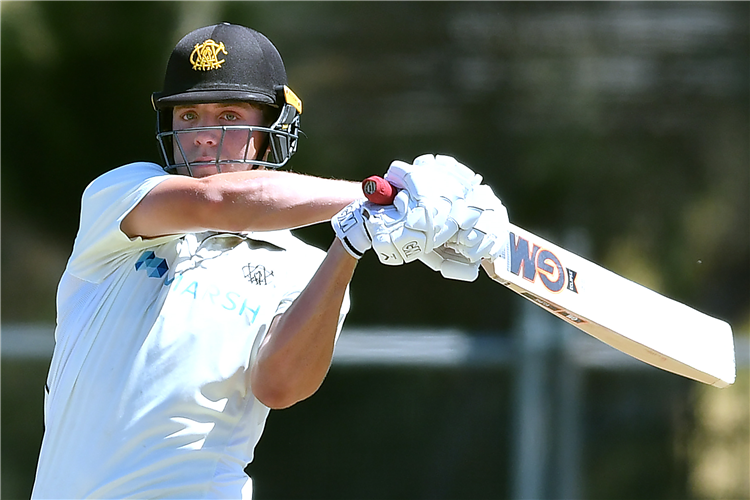3 minute read
Chris Nowinski, who has been at the forefront of research into AFL, NRL and NFL head knocks, says cricket must fully embrace concussion subs.

The American expert who helped reveal the NFL's concussion crisis has encouraged cricket players, coaches and commentators to see the bigger picture if ever sceptical about head-knock substitutions.
The past fortnight, during which Ravindra Jadeja, Will Pucovski, Cameron Green and Harry Conway have suffered in-game concussions, has been a reminder of the sport's risks.
Cricket Australia has led the way on the issue.
The governing body trialled concussion subs in the Sheffield Shield, as per a recommendation from the independent review into Phillip Hughes' death, then successfully lobbied for their introduction at international level.
The rule, adopted in 2019, stipulates the match referee can approve a like-for-like substitution.
A recent heated confrontation between David Boon, who will serve as match referee throughout the four-Test series against India that begins on Thursday, and Australia coach Justin Langer was followed by widespread commentary around potential grey areas and abuse of the law.
Jadeja tweaked his hamstring prior to copping a bouncer blow, while Yuzvendra Chahal's status as a true like-for-like replacement in that instance was questioned.
Australia and India boast potent pace attacks, ensuring the prospect of head knocks in coming weeks looms large.
Concussion Legacy Foundation (CLF) co-founder and chief executive Chris Nowinski says it is important to be cautious about such a serious issue.
"We have to try to see the big picture here. If there are a few substitutions that don't go your way, you have to let that go," Nowinski told AAP.
"If you're found to have used a health rule for professional advantage in a game then people should be banned, there should be very harsh penalties.
"But I highly doubt anybody would throw their credibility out the window for the sake of a substitution."
The CLF's global brain bank initiative is at the forefront of Chronic Traumatic Encephalopathy (CTE) research.
Nowinski has previously called for cricketers to consider pledging to donate their brains, with researchers having discovered evidence of CTE in baseballers.
"All concussions are invisible and I encourage coaches and athletes to never question diagnoses without real evidence," he said.
"Because anybody whoever admits a concussion is afraid of being accused of not having one."
Mark Waugh proposed neutral doctors at matches as one way of easing concerns, although that would require significant funding at a time when costs are being cut.
"If people are concerned about conflicts of interest then yes, a neutral doctor has been a very effective strategy in the NFL," Nowinski said.
"But most concussion symptoms are invisible. A player can claim to be dizzy or not remember something, it's unverifiable.
"Players have to be educated to never try to take advantage of the system."
Nowinski also stressed the importance of immediate assessment, which didn't happen in Jadeja's case.
Nathan Lyon suggested Australia, who enacted the first concussion sub in Test cricket after Steve Smith was struck at Lord's, were "very comfortable" with the rule.
"It's part of the game now. We just need to make sure we try to avoid getting hit," Lyon said.





